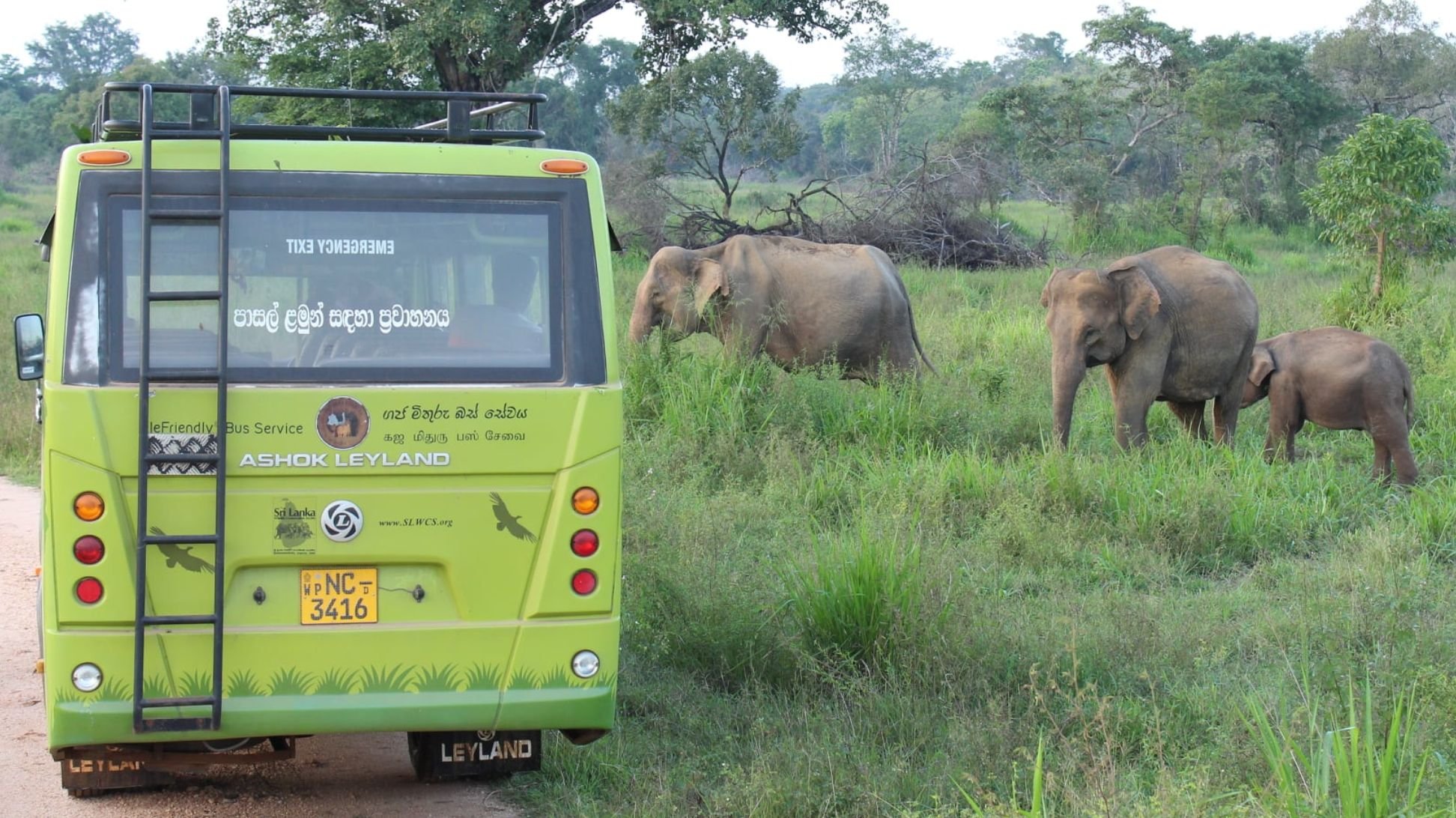Elephants & education go trunk-in-hand - A lot of the work that Asian Elephant Support does surrounds education. From additional training for veterinarians, skill building for mahouts, community awareness programs and funding for safe transportation for children to attend school, AES wants to put the knowledge and resources in the hands of our partners and communities living with elephants in Asia!
In one of our most recently funded projects, AES committed to providing money to the Sri Lanka Wildlife Conservation Society to help service and repair the EleFriendly Bus in Sri Lanka. In 2016, AES was part of a group that helped purchase this bus that made it possible for children to be transported to their school along a route frequented by wild elephants.
Since the start of this bus service to nine villages, which is also used by community members when the children are in class, Human-Elephant Conflict has been reduced by 90% along the corridors it travels. The funding of repairs came just in time for the start of the new school session in January and just in time for us to celebrate the International Day of Education, on January 24th!
Thank you to all of our partners in the field for their continuing work to care for and conserve Asian elephants and support the communities living amongst them. If you would like to support our partners throughout Asia, consider becoming an Monthly Donor. Click here to learn how!




